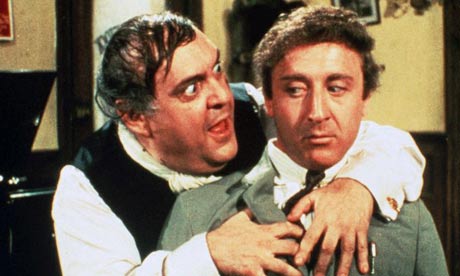The below is not the whole story. And it's too overbearing to define a single starting point for the analysis of cultural products in general.
Anyway, there is another approach that is also valuable IMO.
That is, we understand any cultural work as fashioned from the author's internal worldview, which is itself formed from dynamic interaction with the world. So we can, for lack of a better word, interrogate an author's standpoint in their social world via their work.
The benefit of this derives from the specific characteristics of artistic products, which is that they have the capacity (and the permission) to convey a worldview in a way that no other secular product can. I think this, indeed, is one of the central points of the historical critique of art, which argues that art is invested with many of the functions of religious expression in secular capitalist society.
So, if an artistic product can express its creator's worldview, this is useful for us if we think a couple of things:
1) The artist is involved in a social system
2) Their worldview will be formed from their interaction with this system (this interaction needs further investigation, to dispel the stifling ambiguity).
If we believe these things, then the utility of an artistic product is in its capacity to convey the artist's worldview, its relation to their concrete standpoint, and hence something of their world.
The benefit is that we can hence understand radically different (whether distant in time, space, class, etc.) standpoints in otherwise impossible detail & unity. By engaging with many particular visions, we can start to construct something of a general vision. From the particular to the general, this, for me, is the movement of realism.
Saturday, 5 September 2009
Wednesday, 2 September 2009
The Producers

The starting point for the analysis of any cultural product (call it text, or whatever you please) is to see it as a productive system. It aims to produce a certain complex of effects upon the person who receives it, views it, interacts with it.
A work that can be said to fail, is a work that does not produce the effects for which it was intended. Artaud. Melville. Bialystock & Bloom.
When we talk about genre films, or genre fiction, we are referring to the effects that the work will visit upon us, the reason that we pick it up, go to the cinema. Action, romance. Each of these words conveys, in a broad sense, the set, or range of personal responses upon which the work will play. Failure then, is also a frustration of our expectation.
When we identify this range, we can then discuss technical and ideological issues. A certain method of montage, cinematographic style, etc., or gender roles, construction of space, etc. these can be assessed, broken up, and reinserted into the understanding as a whole. But technical and ideological are not separate. Not at all. Psycho-cam in Halloween, strong arms in Mills & Boon.
We must ask why our expected responses are played on in specific ways, what modes of behaviour this presumes, and what this (often publically enacted) call-response principle reinforces. Aka, why do boring people like stupid movies & why do artschool wankers like lame-ass pretentious movies?
Subscribe to:
Comments (Atom)
